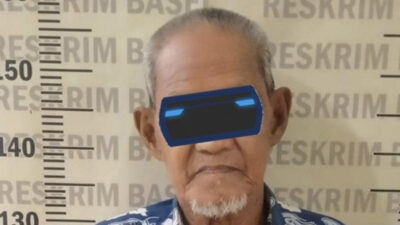In the realm of software management, Windows crack represents a controversial topic often associated with software piracy. When discussing activation methods for Microsoft’s Windows operating system, the term “crack” typically refers to unauthorized tools and techniques used to bypass legitimate license requirements. These include patches and keygens that aim to unlock the full functionality of Windows without purchasing a valid license.
While these crack methods may provide temporary access to Windows features, they come with significant risks. Utilizing such tools often violates Microsoft’s terms of service and can lead to security vulnerabilities, system instability, and legal consequences. It is crucial to understand the implications of using these unauthorized methods and consider the benefits of legitimate activation routes to ensure a secure and compliant computing experience.
Understanding Windows Crack Tools and Methods
Windows crack tools and methods are techniques used to bypass the legitimate activation process of Microsoft Windows operating systems. These tools and methods are primarily employed for piracy, allowing users to access the software without purchasing a valid license. Here, we explore some common types of these tools and their implications.
Common Types of Crack Tools
- Patch: A patch is a small program designed to modify existing software files to disable or bypass activation checks. This modification enables the software to run without the need for a valid license.
- Keygen: Keygens, short for key generators, create counterfeit product keys. These keys are used to trick the Windows activation system into believing that the software is legitimately licensed.
- Crack: The term “crack” broadly refers to any tool or method that circumvents software protection mechanisms. This can include both patches and keygens.
Methods of Activation Bypass
- Manual Patching: Users manually apply patches to system files or configuration settings. This requires technical knowledge and often involves replacing or modifying system files.
- Automated Keygen: Automated keygens generate multiple activation keys and are typically used to quickly obtain a valid-looking key. These keys are then used to activate the Windows operating system.
While these crack tools can offer temporary access to Windows, using them poses significant risks, including security vulnerabilities, potential legal consequences, and a lack of support or updates. It is advisable to always use legitimate software to ensure safety and compliance with legal standards.
How Windows Crack Software Impacts System Security
Using cracked software for Windows poses significant risks to system security. When users opt for piracy by downloading unauthorized software, they expose their systems to various vulnerabilities.
- Malware Infiltration: Crack software often contains hidden malware that can compromise system security. Hackers embed malicious code in keygens, patches, and other tools designed to bypass activation, allowing unauthorized access to your system.
- Unpatched Vulnerabilities: Official Windows updates and patches are critical for maintaining system security. Cracked versions typically disable these updates, leaving your system exposed to known vulnerabilities that would otherwise be fixed.
- Loss of Data Integrity: Cracked software may alter core system files, leading to instability and potential data corruption. This can result in the loss of important information and make recovery difficult.
- Privacy Risks: Many crack tools require administrative privileges to function. This level of access can allow malicious software to monitor your activity, steal sensitive information, and compromise your privacy.
The risks associated with using cracked Windows software far outweigh the perceived benefits. To maintain system security and ensure the integrity of your data, it is crucial to use legitimate software and keep your system updated.
Exploring Legal Risks Associated with Windows Cracking
Cracking Windows software by using tools like official kmspico, keygens, or patches might seem like a quick solution to bypass activation, but it carries significant legal risks. Engaging in such activities can lead to serious consequences, including fines, lawsuits, and criminal charges.
Legal Consequences of Using Cracked Windows Software
Using cracked versions of Windows software constitutes piracy, which is illegal in many countries. When you crack software, you violate the software’s license agreement, leading to potential lawsuits from software companies. These companies actively monitor piracy and may take legal action against individuals or organizations caught using unauthorized copies.
Risks of Distributing Cracked Software
Distributing keygens, cracks, or patched versions of Windows is equally risky. Those involved in the distribution can face even harsher penalties than users. This includes fines, imprisonment, and a permanent criminal record. Distributors are often targeted by law enforcement agencies focused on combating software piracy.
| Activity | Potential Legal Consequences |
|---|---|
| Using a Windows Crack | Fines, Lawsuits, Criminal Charges |
| Distributing Keygens | Imprisonment, Heavy Fines |
| Software Piracy | Civil Penalties, Legal Action |
Effective Alternatives to Using Windows Crack Solutions
Using cracks, keygens, or patches to activate Windows software illegally not only violates copyright laws but also poses significant security risks. There are several legitimate alternatives to avoid piracy and ensure a safe and reliable operating system experience.
| Alternative | Description |
|---|---|
| Open-Source Operating Systems | Consider switching to open-source alternatives like Linux distributions, which offer free, regularly updated software without the need for illegal activation methods. |
| Free Windows Upgrade Programs | Microsoft occasionally offers free upgrades to newer versions of Windows for eligible users. Stay informed about such programs to legally obtain the latest version. |
| Educational Discounts | Students and educators often have access to significant discounts on Windows licenses through verified educational programs. |
| Trial Versions and Freeware | Many software applications offer free trials or freeware alternatives that provide essential functionality without requiring illegal cracks or keygens. |
| Official Microsoft Offers | Keep an eye out for official discounts, promotions, or bundle deals from Microsoft, which can provide legal activation at a reduced cost. |
By choosing these alternatives, users can avoid the dangers associated with crack software, such as malware, data breaches, and legal consequences, while maintaining a secure and stable system.
Comparing Free vs Paid Windows Crack Software
When it comes to cracking Windows, users often face a choice between free and paid crack software. Both options aim to bypass the official activation process, but they differ in various aspects, including safety, functionality, and long-term reliability.
Key Differences
- Activation Success Rate: Paid crack software often provides a higher success rate in activation compared to free alternatives. Paid tools may offer more advanced algorithms, increasing the chances of bypassing the license checks.
- Security Risks: Free Windows crack software is more likely to be bundled with malware, trojans, or other malicious code. Paid versions, while not always safe, generally undergo more rigorous testing to ensure a cleaner patch or keygen.
- Support and Updates: Paid crack software might offer some level of customer support or regular updates to counteract new Windows security measures. Free versions are typically outdated or abandoned by their creators.
Legal and Ethical Considerations
- Piracy Risks: Both free and paid crack software are illegal and constitute software piracy. Using such tools violates the software license agreement and can lead to legal consequences.
- Ethical Concerns: Utilizing crack software undermines the value of legitimate software development and harms the industry. It is important to consider the broader impact of using such methods to obtain a Windows license.
Best Practices for Avoiding Windows Crack Scams
When seeking software solutions, it’s important to avoid the dangers associated with Windows crack scams. These scams often lure users with promises of free activation, but can lead to severe consequences, including malware infections and data theft. Below are some best practices to help you steer clear of these threats.
| Practice | Description |
|---|---|
| Use Genuine Software | Always download Windows software from official sources or trusted retailers. Avoid using cracked versions or keygen tools that claim to bypass activation requirements. |
| Avoid Patch Files | Patches that offer to “fix” software activation are often bundled with malware. These files can compromise your system’s security and lead to data breaches. |
| Enable Antivirus Protection | Ensure that your antivirus software is up-to-date. This will help detect and block potentially harmful software, including Windows cracks and related piracy tools. |
| Check Software Integrity | Before installing any software, verify its digital signature to ensure its authenticity. This step helps in avoiding tampered or cracked versions. |
| Report Suspected Scams | If you encounter a site or service offering cracked software, report it to the appropriate authorities. This helps in reducing the spread of software piracy. |
By following these practices, you can protect your system from the risks associated with Windows crack scams and ensure a safer, more secure computing experience.
FAQ
What are the consequences of using cracked software like Windows?
The consequences of using cracked software, including Windows, can be severe. Legally, you could face fines or other penalties for software piracy. On a technical level, cracked software often lacks critical security updates, making your system vulnerable to viruses, malware, and cyberattacks. Moreover, cracked versions may be unstable, causing frequent crashes and loss of data. The risks far outweigh any potential savings, and it’s advisable to use genuine software.
Why do some people choose to use cracked versions of Windows?
Some people choose to use cracked versions of Windows primarily to avoid paying for a legitimate license. They may feel that the cost of purchasing Windows is too high or believe they can avoid legal repercussions. However, this short-term saving often leads to long-term problems, including security risks, legal issues, and unstable software performance. While it might seem like a cost-effective solution initially, the risks involved make it a poor choice.
Can a cracked version of Windows be upgraded to a legitimate version?
Yes, you can upgrade a cracked version of Windows to a legitimate version, but the process may not be straightforward. You would need to purchase a valid Windows license and enter the product key in your system settings. After that, you might need to perform a clean installation of Windows to ensure everything is properly configured. It’s important to note that upgrading to a legitimate version will help you avoid the security and legal risks associated with using cracked software.
What are the alternatives to using a cracked version of Windows?
There are several alternatives to using a cracked version of Windows. The most straightforward option is to purchase a legitimate license from Microsoft or an authorized retailer. If the cost is an issue, consider looking for discounted or OEM versions of Windows, which are often available at a lower price. Alternatively, you can explore free operating systems like Linux, which are open-source and offer many of the same functionalities as Windows without the associated costs and risks of using cracked software.
Is it legal to use a cracked version of Windows?
No, using a cracked version of Windows is illegal. When you use a cracked version, you’re violating Microsoft’s software licensing agreements. This can lead to legal consequences, including fines. Additionally, cracked software is often modified and can contain malware or other harmful code that could compromise your personal data or damage your computer. It’s always safer and more ethical to use a legitimate copy of Windows, which ensures you receive security updates and support from Microsoft.




